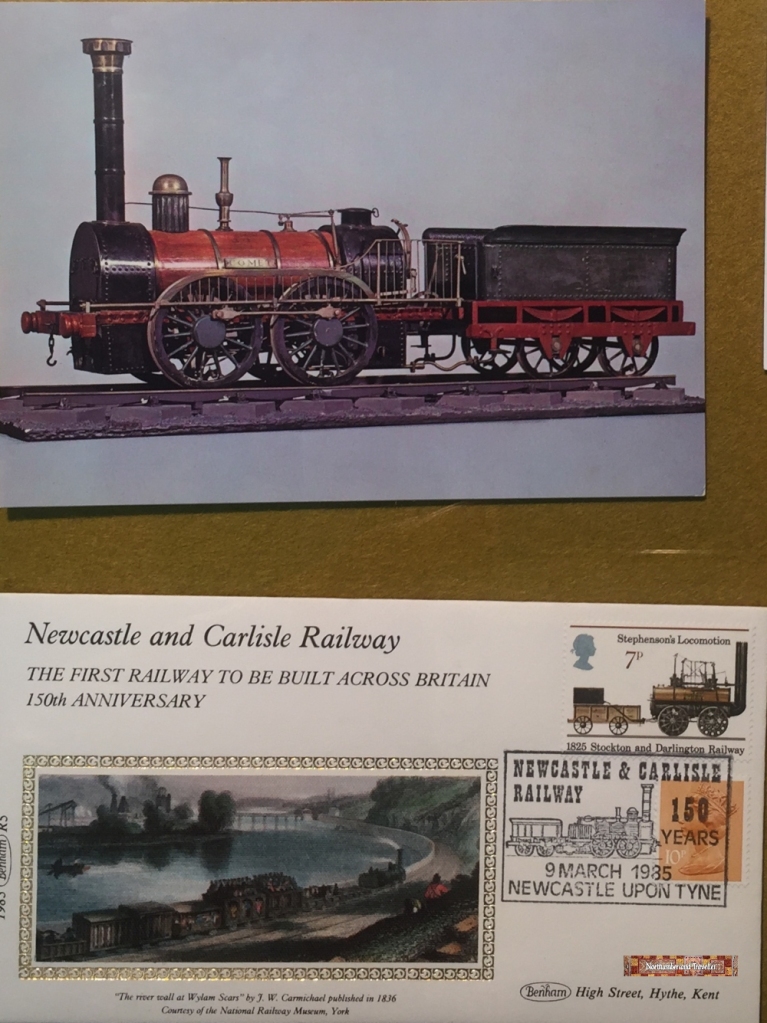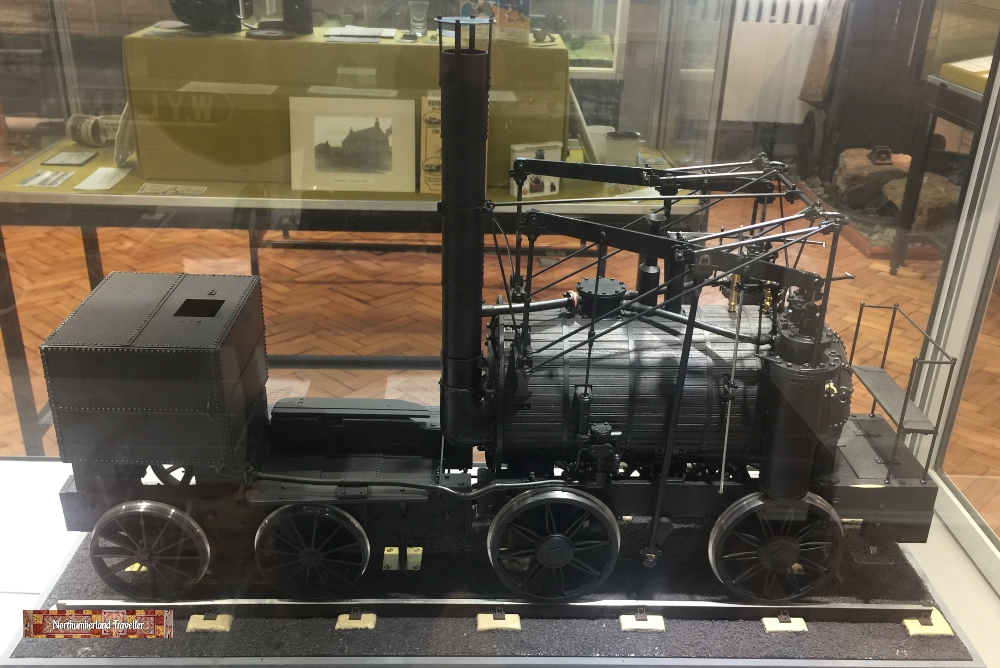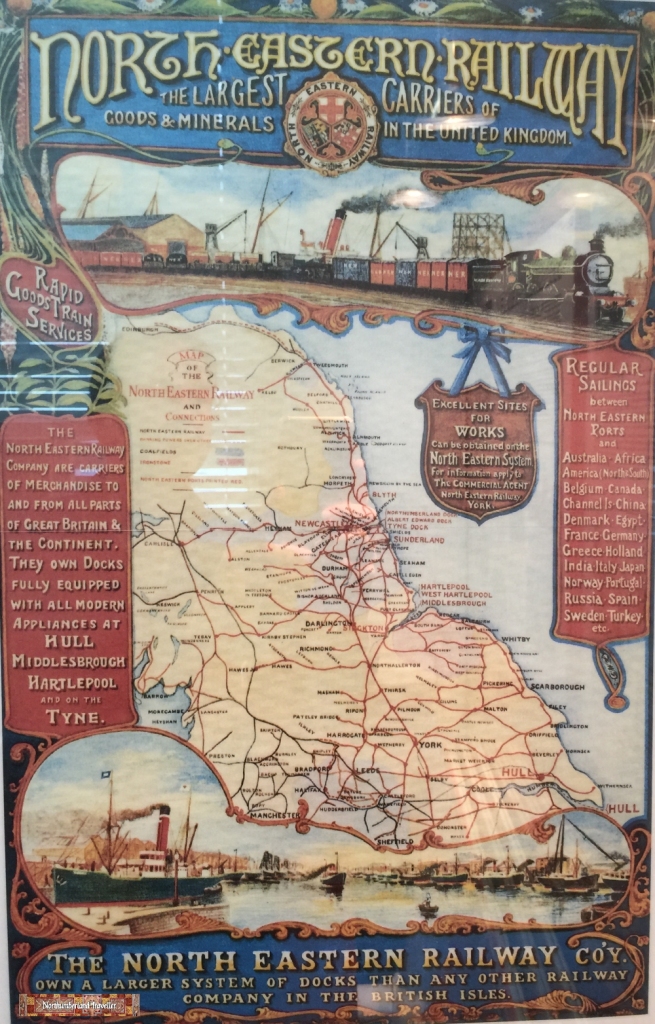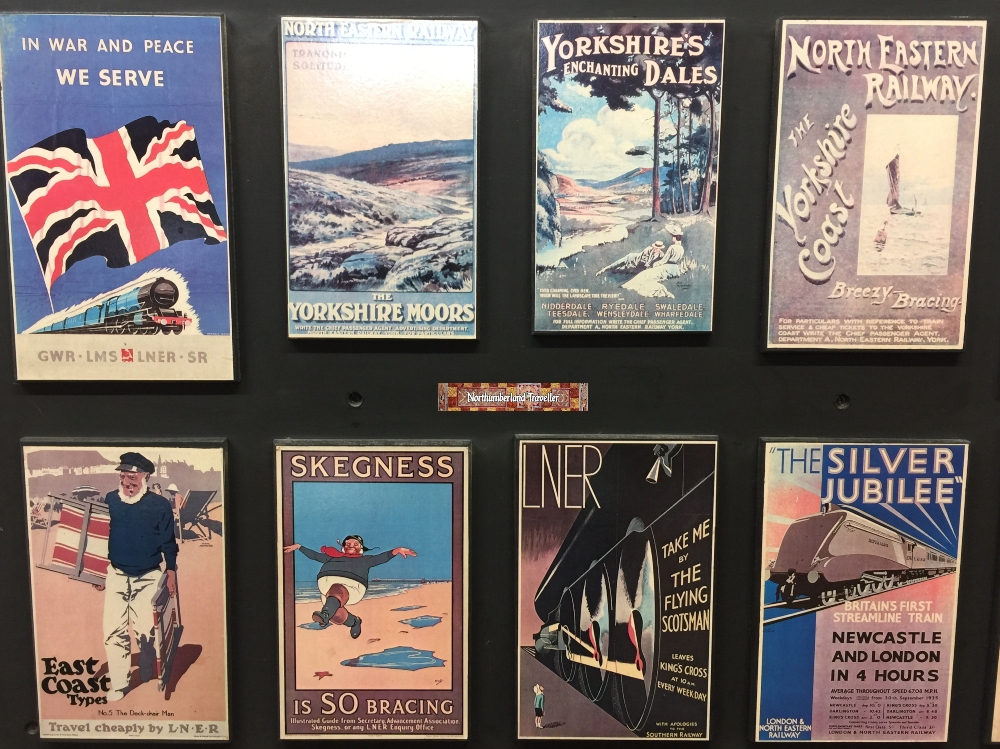
Wylam Railway Museum was opened in 1981 coinciding with the bicentenary of the birth of Wylam’s most famous son George Stephenson (1781-1848), known as the Father of Railways.
This tiny museum is housed in a former classroom of the old Wylam Primary School. It shares the building with the village library.
The museum may be small but it is packed with interesting railway artefacts and exhibits.

There is a wall chart displaying obscure trivia about the history of the Newcastle and Carlisle Railway, the first railway to be built across Britain . For example you may not have heard of station clerk Thomas Edmondson who invented a system of cardboard tickets which became the standard used around the world.

Then there was the Sabbatarian Reverend W C Burns who authored this poster threatening eternal damnation to anyone who took a train trip on a Sunday. Perhaps he foresaw that most of his hard working parishioners would sooner spend their one day off per week quaffing ale in a pub in the North Pennines rather than listen to his dreary sermons.

Exhibits focus on the contribution of local railway pioneers such as George Stephenson, William Hedley, Timothy Hackworth and Nicholas Wood.

There are models of Wylam Station, North Wylam Station and Wylam Railway Bridge.

There are also large scale models of two famous locomotives, Puffing Billy and Wylam Dilly, which were in use at Wylam Colliery to haul coal wagons in the early 1800s.

There are a lot of old photographs, maps and vintage railway posters on display.

Opening Times & Admission Charges
The museum is open during library opening hours:
Tuesday 1 – 6 pm
Thursday 1 – 6 pm
Saturday 9 am to 12 noon
Ticket Prices
Entrance is free.
How To Get to Wylam Railway Museum
The location of the museum can be found on this map:
Address:
Wylam Railway Museum
The Falcon Centre
Falcon Terrace
Wylam
NE41 8EE
GPS:
54°58’37.2″N 1°49’04.1″W
54.977003, -1.817793
Plus Code: X5GJ+RV Wylam
Tel:
Wylam Parish Council 01661 852498
Wylam Library 01661 852174
Nearby
George Stephenson’s Cottage
Wylam Railway Bridge
Prudhoe Castle

2 thoughts on “Wylam Railway Museum”